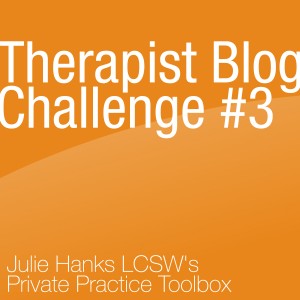 Less than one year ago Leticia Reed, LCSW opened her private practice in Long Beach, CA. Find out what resources and tools have helped Ms. Reed muster the courage to open her own practice, what she's learned from clients, and how she manages her roles as "therapist" and "business owner".
Less than one year ago Leticia Reed, LCSW opened her private practice in Long Beach, CA. Find out what resources and tools have helped Ms. Reed muster the courage to open her own practice, what she's learned from clients, and how she manages her roles as "therapist" and "business owner".
Tell me about your private practice...
I opened Reed Behavioral Solution in March of 2012. My practice mission is: "Helping individuals, couples and families achieve hope, healing, wellness and freedom. Empowering my clients to leave better than they arrived is what drives me to provide the best and most effective services. I specialize in women's empowerment and trauma, although I provide a wide range of services to other populations in my practice. I also offer Christian counseling for those seeking spiritual connectedness as a means of coping and regaining a sense of purpose and hope.
Why did you decide to open a private practice?
I began my practice after leaving employment with the County of Los Angeles and feeling like individuals were being failed by the system as they were only treated as a number that became lost in a revolving door. I felt like opening my practice provided me with an opportunity to make a significant impact, one with real rehabilitation and healing.
Clients that therapists find to be the most “difficult” are sometimes the ones who can teach them the most. What have you learned from your toughest clients?
I agree that "difficult" clients provide the most meaningful learning experiences. Through my more challenging cases, I have learned the importance of patience, tolerance, unconditional positive regard as well as the real importance of "starting where the client is" to guide them towards healing. The technique- Motivational interviewing has been the principle that I have incorporated to achieve this while increasing motivation.
What’s your biggest pet peeve about private practice?
One of my biggest pet peeve would be the amount of documentation required as it takes away from my time spent in direct contact with my clients. However, it's necessary as it also provides me with a blueprint and framework that guides my treatment and goals.
How did you discover or develop your practice “niche”?
My niche sort of evolved as the majority of my clientele seeking services has been women with self-esteem and trauma related issues.
What resource (book, website, person) helped you the most when setting up your private practice?
The various resources that have aided me in starting my private practice has been the following:
Nakeya Fields of Fields Family Counseling who offers a workshop geared towards assisting individuals starts their private practice, while providing lifelong networking and consultation with other group members. I also used and received a wealth of information from Ofer Zur Institute Practice Handbook for HIPAA friendly forms and regulations. My mentor Cynthia G. Langely, my prior clinical supervisor who has many years in the field serving in various positions, including on the CA BBS panel when the Oral examinations were required, has continued to provide me with a wealth of information and support. Lastly, The various Facebook groups I am currently in, including Julie Hanks’s Private Practice Facebook group have also increased my knowledge that has been instrumental in keeping me current in the field.
What has surprised you most about being in private practice?
The things that have surprised me the most about building a private practice has to be the amount of work it takes to stay afloat and monetary resources needed to build and maintain operation. Another surprise has to do with the number of people hurting and in search of HOPE, some of which are fellow colleagues.
Has your private practice helped you grow professionally?
My private has influenced my growth professionally in the sense that it has taught me the importance of being organized, detailed oriented, punctual, and the importance of networking/collaboration.
Has it helped you grow personally, too?
On a personal level it has made me to be more grateful and attuned to the world and my purpose in it, helping me to not take anything for granted.
Being a therapist can be emotionally exhausting. What do you do to care for your own emotional and psychological health?
Self-care is extremely important to me. I love pampering myself, traveling and engaging in church activities, reading my bible and praying. I also make it a point to surround myself with positive people that are encouraging and uplifting.
How do you cope with the inevitable stressors involved with being your own boss?
I cope with the stressors of being my own boss by consulting with colleagues in practice and digging my heels in the sand and "just doing it". My tenacious spirit and optimistic personality as well as my strong Faith in God has assisted me in my success in this short amount of time I have been practice. Colleagues that know when I began have commented on my rapid success. I am a very blessed woman and I am looking forward to even more expansion in 2013 and beyond.
Find out more about Leticia Reed's private practice at www.reedbsolutions.com







As healers, we genuinely like to do our work. Guiding clients through the therapy process and seeing them make progress is why we do what we do. But if you're in private practice, you know there's a lot going on in the back end and that it's crucial to run an efficient and organized business.